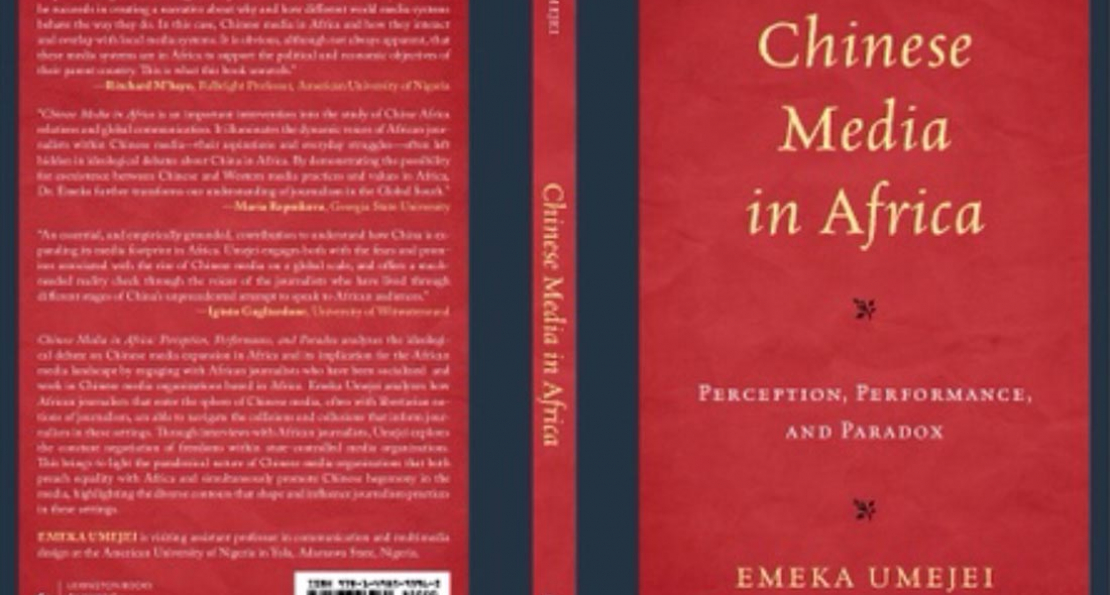One fine day in November, the Communications Office received a call from an unfamiliar number. With the calling code +44, we knew it was from the United Kingdom.
Hello? …
The caller identified himself as Ricardo Espinosa from Microsoft. He wanted the number for our dear instructor, Dr. Emeka Umejei for a specialist session. Knowing the caliber of Faculty at the American University of Nigeria, we already had an inkling of what the conversation would be about.
With the international spotlight beaming so brightly on Dr. Umejei, we thought it would be a nice treat for you to know a bit more about him.
AUN’s Visiting Assistant Professor of Journalism and Media Studies, Dr. Emeka Umejei has worked as a journalist for more than a decade in Nigeria and internationally. In Nigeria, he was a business editor for a national newspaper and subsequently worked as the African Correspondent for a US-based trade magazine with responsibility for the African market. In that role, he reported from Johannesburg, South Africa. In a chat with AUNThisWeek, he spoke about life, Chinese influences in Africa, and what it means to be Nigerian. Enjoy!
AUNTW: Who is Emeka Umejei?
Dr. Emeka: A Nigerian, who has enjoyed the uncommon grace of God. I also have the unique advantage of having professional experience and academic knowledge of journalism.
AUNTW: What is your educational background?
Dr. Emeka: I hold a Ph.D. from the University of the Witwatersrand in Johannesburg, South Africa, and a Master’s from Rhodes University in Grahamstown, South Africa.
AUNTW: What were your fondest memories growing up?
Dr. Emeka: I grew up in an era when hard work was still attractive, and rewarded by society. Unfortunately, things have changed in Nigeria; children of nowadays are looking for the easy way out.
AUNTW: What makes Nigeria special to you?
Dr. Emeka: The survivalist spirit; that is what distinguishes Nigerians from other Africans. We can survive and thrive in the most difficult circumstances and that is why you find exceptional Nigerians all over the world doing great stuff.
AUNTW: Why work at AUN?
Dr. Emeka: AUN is a great place to be and the students are awesome. AUN students are some of the most creative and talented set of young people I have come across in the world.
AUNTW: What sets AUN apart from other Nigerian universities?
Dr. Emeka: The students are its most vital asset. I have interacted with students from diverse backgrounds and can affirm that AUN students are top of the range in terms of creativity and intellectual capacity.
AUNTW: What inspired you to author the book, Chinese media in Africa: Perception, Performance, and Paradox?
Dr. Emeka: The book came out of my doctoral dissertation; I added a bit of research to update it. China is the new kid on the block and it is important to examine its cultural power in Africa, which is mediated through its media organizations on the continent. The book provides a rare insight into the workings of Chinese media organizations in Africa through the lens of African journalists who are involved in the day-to-day activities of these media organizations.
AUNTW: You say Chinese media organizations’ operation in Africa is influencing Chinese hegemony on the continent but isn’t that always the case with the media, the piper always dictating the tune?
Dr. Emeka: Well, China is interested in promoting an alternative paradigm of journalism different from the western model. As a new power, China also wants a fair share of its media model promoted on the global stage and Africa is a viable starting point for it. So, it is using its media to promote both its economic and political interest in Africa.
AUNTW: African journalism is not without its fault wouldn’t it be better for African journalist to focus on providing superior journalism so it doesn’t matter what the Chinese agenda is because Africans with access to better information will ultimately make better choices about their own ideologies?
Dr. Emeka: This is what it ought to be but power relations exist even within independent media organizations. The power relations between Africa and China despite the claim to mutuality and equality are reproduced in Chinese media organizations in Africa. So, you also have asymmetric relations between Chinese and African journalists working in Chinese media organizations even though China promises mutuality and equality.
AUNTW: What life philosophy are you guided by?
Dr. Emeka: God first, other things follow
On a Lighter Note
AUNTW: Instagram, Twitter, or Facebook what is your guilty pleasure?
Dr. Emeka: I am not on Instagram: Facebook: Emeka Umejei; Twitter: @emekaumejei
AUNTW: Favorite meal?
Dr. Emeka: Any good food will do
AUNTW: Music?
Dr. Emeka: Highlife when I am in the mood
AUNTW: What do you want your students to remember you for?
Dr. Emeka: A teacher, who is also a friend.
Dr. Emeka Umejei has been published in international academic journals such as Africa-East-Asian Affairs, Chinese Journal of Communication, and African Journalism Studies. He is also a reviewer for several international academic journals including International Journal of Communication (IJoC), Chinese Journal of Communication, African Journalism Studies, The Journal of International Communications, and Journal of Public Affairs.
His new book Chinese media in Africa: Perception, Performance, and Paradox is available online: https://rowman.com/ISBN/9781498593977/Chinese-Media-in-Africa-Perception-Performance-and-Paradox
Reported by the Office of Communications


